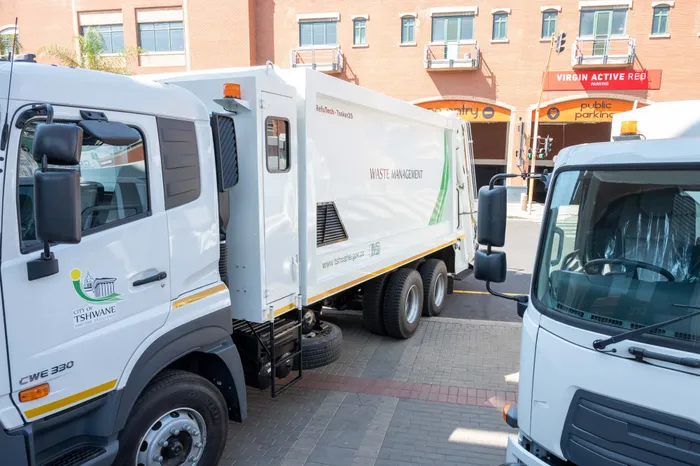
AfriForum has slammed the City of Tshwane's proposed cleansing levy, calling it unlawful and an added burden on residents.
Image: Helenus Kruger / City of Tshwane
Civil rights group AfriForum has rejected the City of Tshwane's proposed cleansing levy, calling it unlawful due to double taxation and arguing it would unfairly burden the city's already overtaxed residents.
The proposal is part of a draft budget for the 2025/2026 financial year set to take effect on July 1.
The proposal targets gated communities and shopping malls without existing city waste accounts but using private waste collection services, with a proposed monthly tariff of R194.
Member of the Mayoral Committee for Environment and Agriculture Management, Obakeng Ramabodu, recently explained that some shopping malls are being targeted because they often have multiple bins but only pay for one.
He cited that areas like Wonderpark Estate and malls such as Menlyn Mall are among those targeted, as they use private waste collection services that dispose of waste at city landfills.
“They use our landfills, (which) we maintain (at a cost). They don’t maintain them and that is why we are calling for this cleansing levy,” he said.
The DA in Tshwane has opposed the proposed levy, describing it as another tax burden on the city's already overtaxed residents.
AfriForum has joined the criticism, calling the levy unlawful due to double taxation and arguing it unfairly targets the city's already overburdened residents.
The organisation demands that the levy be scrapped, advocating instead for internal reforms and better resource management within the city.
AfriForum stated that the proposed levy would target vacant land over 150,000m² and properties valued above R250,000 that do not use the city's refuse removal services.
The organisation argues that the proposed levy violates Section 74(2) of the Municipal Systems Act, which requires that municipal service charges be proportional to usage.
Deidré Steffens, advisor for local government affairs at AfriForum, said: “A levy on properties, regardless of the use of a certain service, as planned here, is therefore contrary to this section of the law. This levy is a clear attempt by the Metro to boost its revenue at the expense of overburdened residents.”
Arno Roodt, AfriForum's Pretoria South district coordinator, suggested that the Metro could explore alternative revenue streams instead of further taxing residents.
For example, he said, to boost revenue the Metro should repair weighbridges at landfill sites for accurate load measurement and also eliminate mismanagement at sites like Bronkhorstspruit and Soshanguve.
rapula.moatshe@inl.co.za
